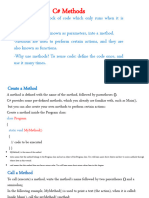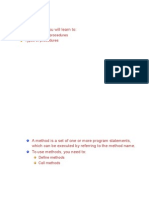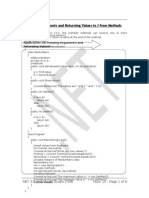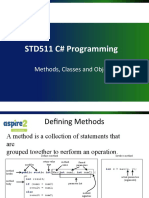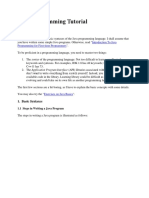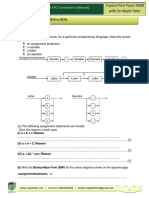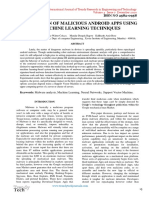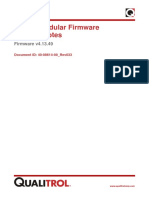0% found this document useful (0 votes)
58 views2 pagesLoops
The document discusses different types of methods in C#, including methods that return values versus those that do not, and how to call methods. It also covers method parameters, allowing methods to accept input, and method overloading, which allows multiple methods to have the same name but different parameters. Key points include:
- Methods are defined using the method name followed by parentheses. They can return values using return or not return anything.
- Parameters pass input to methods and are declared like variables, starting with lowercase letters by convention.
- Method overloading lets a method name be used for multiple versions that differ in parameters, to group related functionality.
Uploaded by
Ramingeswarudu VemuriCopyright
© Attribution Non-Commercial (BY-NC)
We take content rights seriously. If you suspect this is your content, claim it here.
Available Formats
Download as DOCX, PDF, TXT or read online on Scribd
0% found this document useful (0 votes)
58 views2 pagesLoops
The document discusses different types of methods in C#, including methods that return values versus those that do not, and how to call methods. It also covers method parameters, allowing methods to accept input, and method overloading, which allows multiple methods to have the same name but different parameters. Key points include:
- Methods are defined using the method name followed by parentheses. They can return values using return or not return anything.
- Parameters pass input to methods and are declared like variables, starting with lowercase letters by convention.
- Method overloading lets a method name be used for multiple versions that differ in parameters, to group related functionality.
Uploaded by
Ramingeswarudu VemuriCopyright
© Attribution Non-Commercial (BY-NC)
We take content rights seriously. If you suspect this is your content, claim it here.
Available Formats
Download as DOCX, PDF, TXT or read online on Scribd
/ 2



